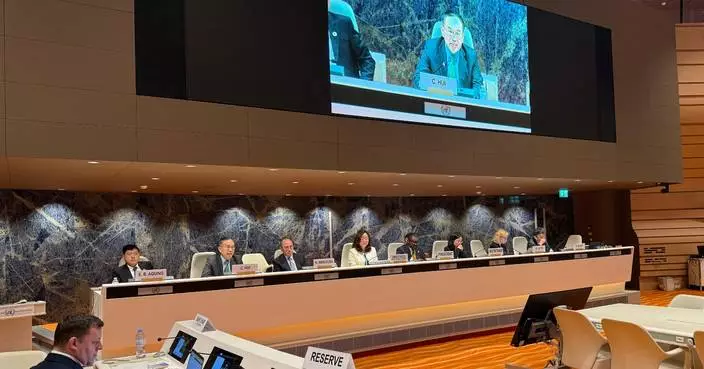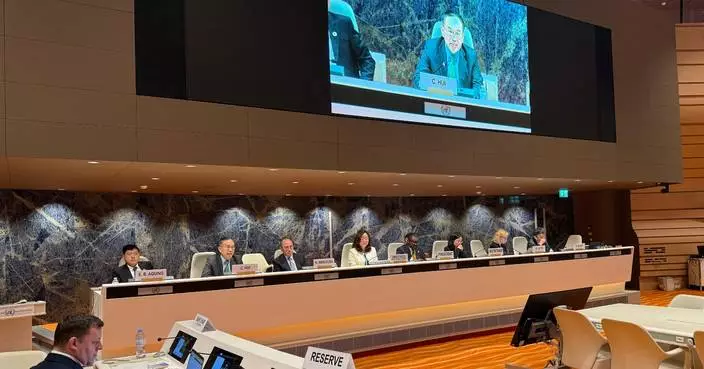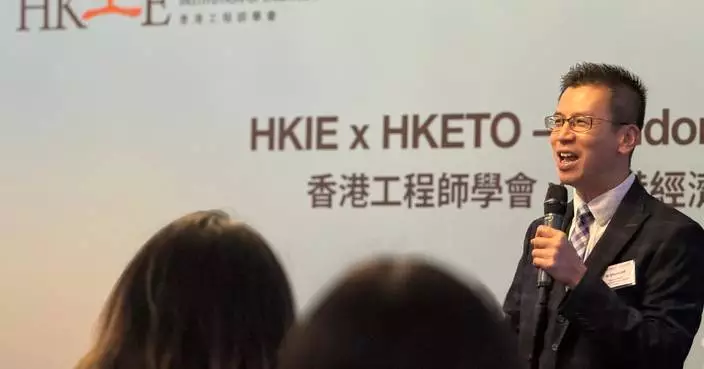Quality Assurance Council publishes report on quality audit of Hong Kong Polytechnic University
The following is issued on behalf of the University Grants Committee:
The Quality Assurance Council (QAC) under the University Grants Committee (UGC) today (November 7) published the report on the quality audit of the Hong Kong Polytechnic University (PolyU) in the third audit cycle.
PolyU was the sixth university audited in the third audit cycle, which places an emphasis on how individual universities review and enhance their framework on academic standards and academic quality, academic programme development, teaching and learning, student learning assessment and support for students, as well as the collection, analysis and usage of data to inform such quality assurance processes.
The audit report presents the findings of the audit panel appointed by the QAC based on the self-evaluation report prepared by PolyU and a series of audit meetings with staff, students and external stakeholders (such as employers) of the university held in April 2024. The audit report was endorsed by the UGC after being considered by the QAC.
The report identified a number of features of good practice and recommended actions with a view to encouraging PolyU and the higher education sector as a whole to strive for continuous enhancement of their quality assurance regimes. The full audit report with the formal response from PolyU is available on the QAC website (www.ugc.edu.hk/eng/qac/about/term/publications/report.html) for public access.
The QAC quality audits ascertain whether the arrangements for quality assurance adopted by universities are fit for purpose and comparable with international best practices. The QAC third audit cycle covers all programmes at the levels of sub-degree, first degree and above, however funded, leading to a qualification wholly or partly awarded by the UGC-funded universities.
The QAC expressed gratitude to PolyU and all stakeholders for their support for the quality audit.
SITI continues visit to Canada
The Secretary for Innovation, Technology and Industry, Professor Sun Dong, continued his visit to Canada on November 6 (Toronto time).
Professor Sun visited the University of Waterloo and met with the University's President and Vice-Chancellor, Professor Vivek Goel; the Dean of Arts, Professor Alexie Tcheuyap; the Dean of Engineering, Professor Mary Wells; the Dean of Faculty of Health, Professor Lili Liu; the Dean of Mathematics, Professor Mark Giesbrecht; the Dean of Science, Professor Chris Houser; and Associate Vice-President Professor Bernard Duncker. The University of Waterloo is a comprehensive and research-intensive university. It ranked 21st in computer science and information systems and 40th in engineering and technology in the Quacquarelli Symonds (QS) World University Rankings by Subject 2024.
Professor Sun was briefed on the University's work in transforming research outcomes. He noted that Hong Kong attaches great importance to the co-ordinated development among upstream, midstream and downstream in innovation and technology development. An array of measures have specifically been launched in recent years to provide support to start-ups, including the I&T Accelerator Pilot Scheme, which provides subsidies to attract professional start-up service providers with proven track records in and beyond Hong Kong to set up accelerator bases in Hong Kong.
The University of Waterloo is one of the top quantum computing universities in the world. Professor Sun visited the Institute for Quantum Computing to learn more about the frontier technology developed by this cross-disciplinary Institute in the field of quantum computing, which consolidates Canada's leading position in the quantum research area through promoting research and innovation. The Institute also serves as a strategic partner for the emerging quantum industry and nurtures talent in the research area.
Professor Sun said that to further enhance research on frontier technology in Hong Kong, HK$3 billion has been allocated in the 2023-24 Budget to launch a scheme in support of the relevant development of frontier technology fields such as artificial intelligence and quantum technology, with a view to better realising basic technology research capabilities for making breakthroughs out of the blue.
Moreover, Professor Sun toured the University's School of Optometry and Vision Science and was briefed on the latest developments, research projects and advanced research equipment of the School by Professor of the School of Optometry and Vision Science and CEO and Scientific Director of the Centre for Eye and Vision Research (CEVR) under InnoHK Clusters, Professor Ben Thompson. The University of Waterloo is one of the non-local partners of InnoHK Clusters. It established the CEVR with the Hong Kong Polytechnic University to promote vision health by making use of clinical, basic and applied research.
Professor Sun noted that InnoHK is committed to fostering global research and development collaboration, while the Hong Kong Special Administrative Region Government strongly encourages strengthening academic exchanges to advance translational research and innovative applications, pooling together outstanding researchers from around the globe for the benefit of innovation and technology development in Hong Kong and worldwide.
Professor Sun concluded his visit to Canada in the evening and will return to Hong Kong in the morning on November 8 (Hong Kong time).
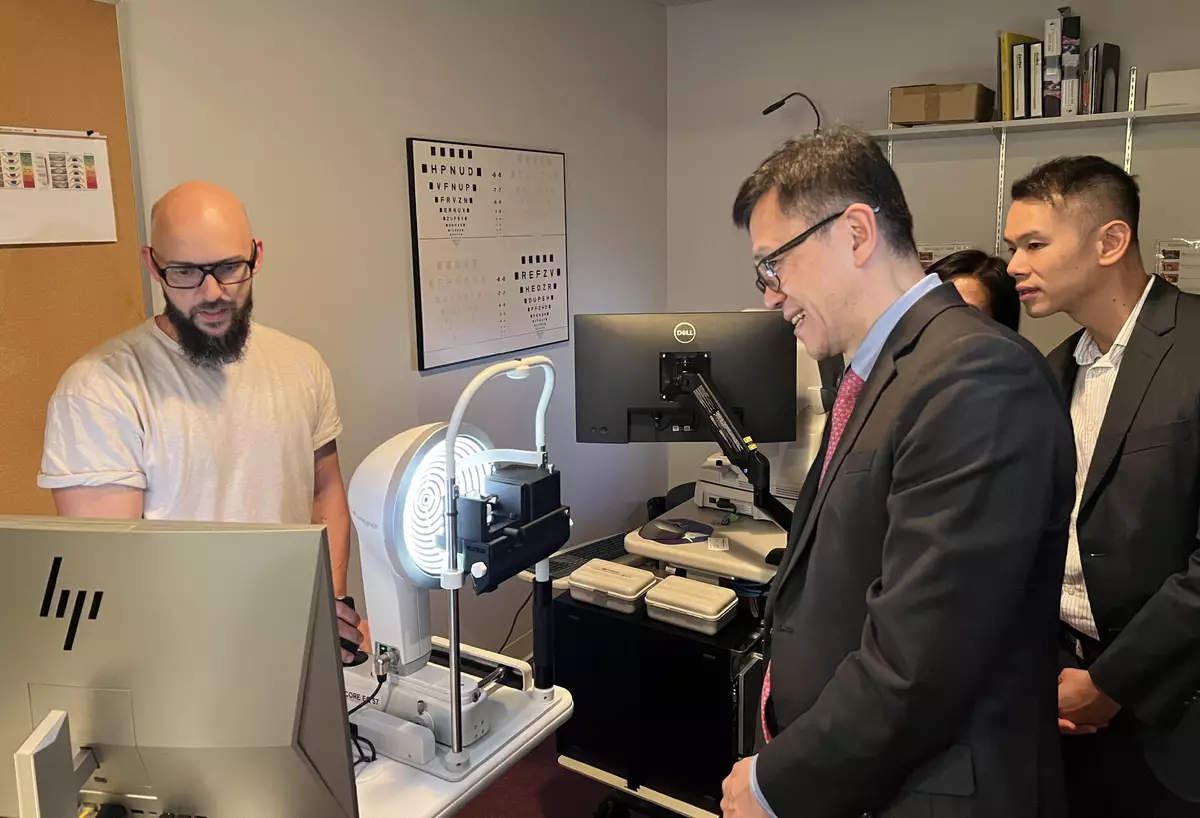
SITI continues visit to Canada Source: HKSAR Government Press Releases
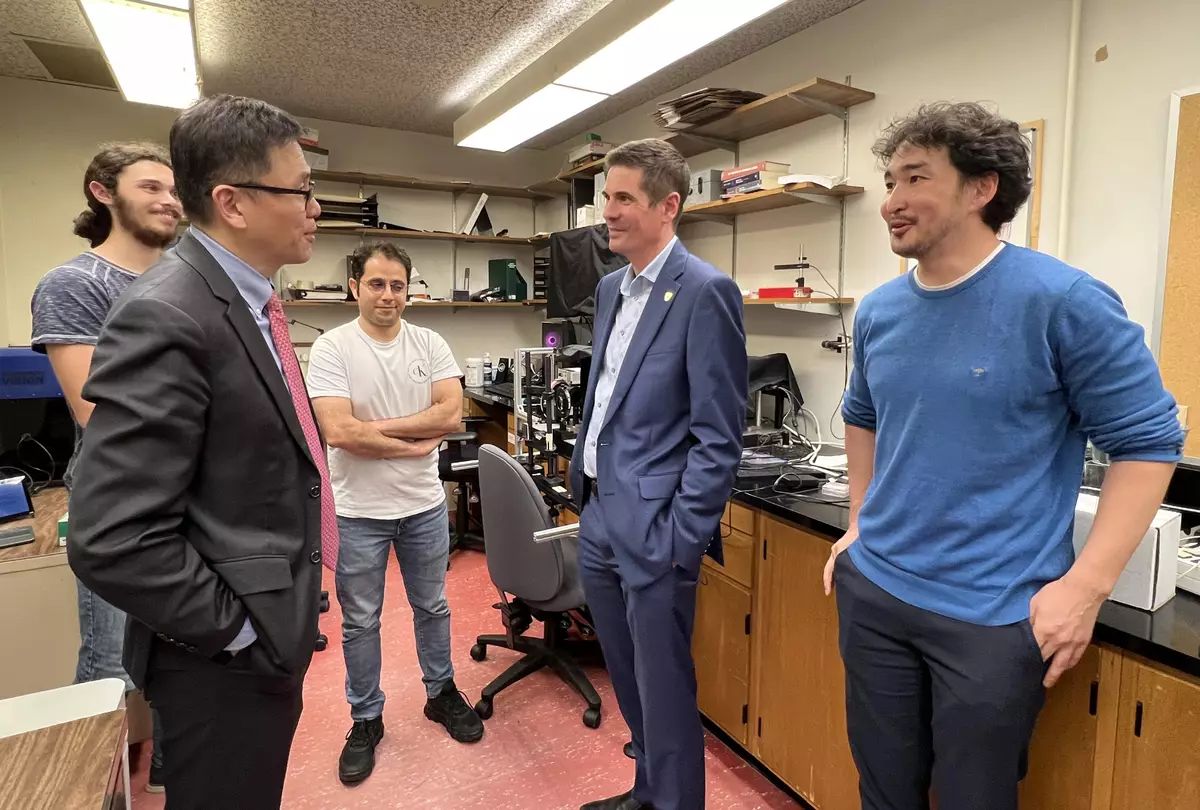
SITI continues visit to Canada Source: HKSAR Government Press Releases
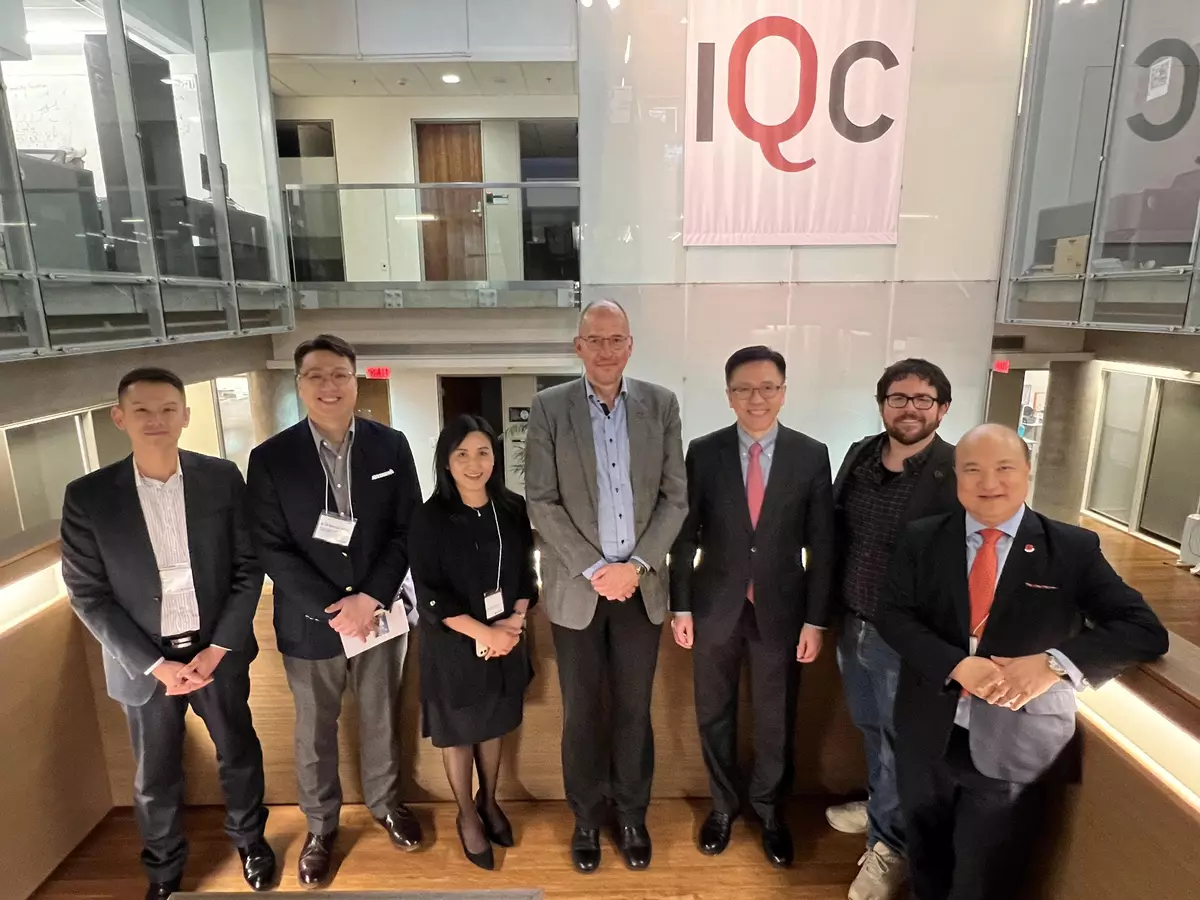
SITI continues visit to Canada Source: HKSAR Government Press Releases
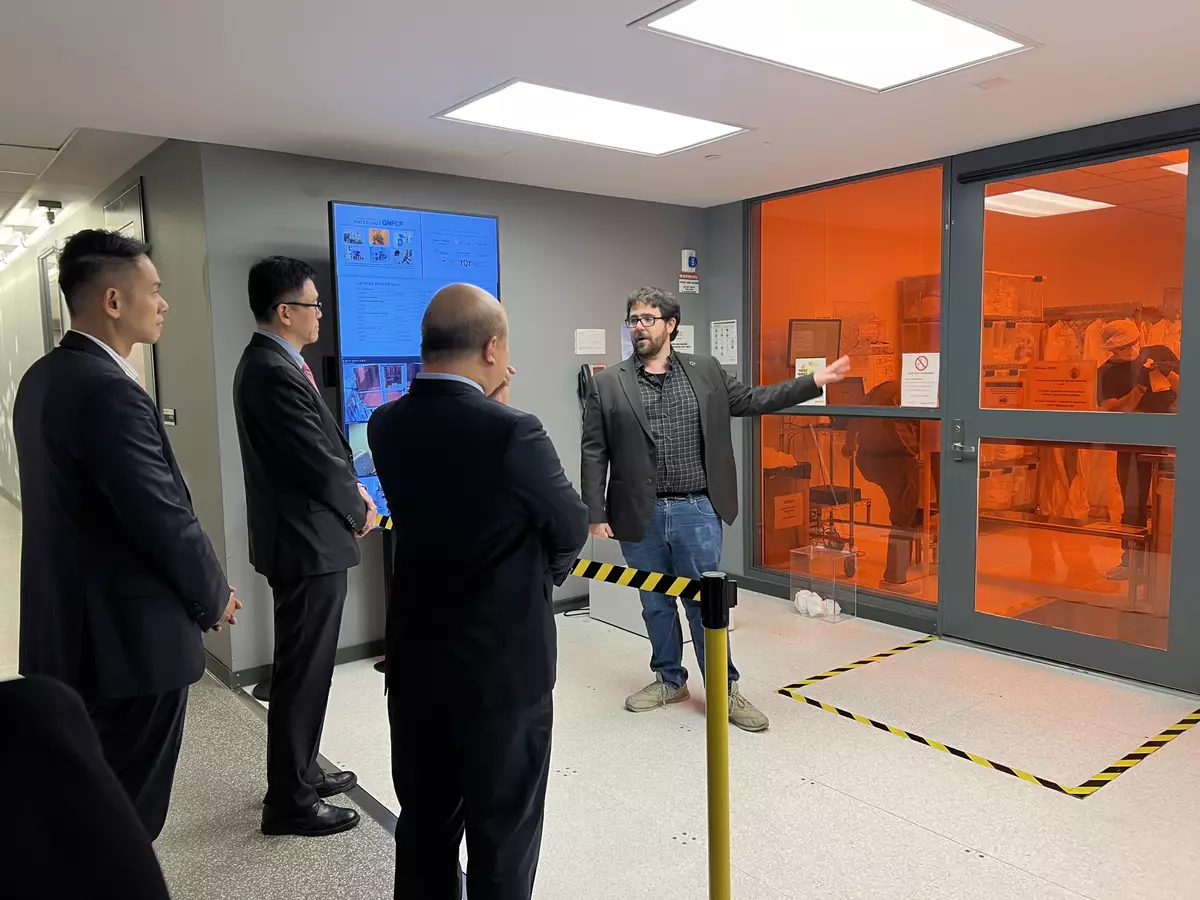
SITI continues visit to Canada Source: HKSAR Government Press Releases
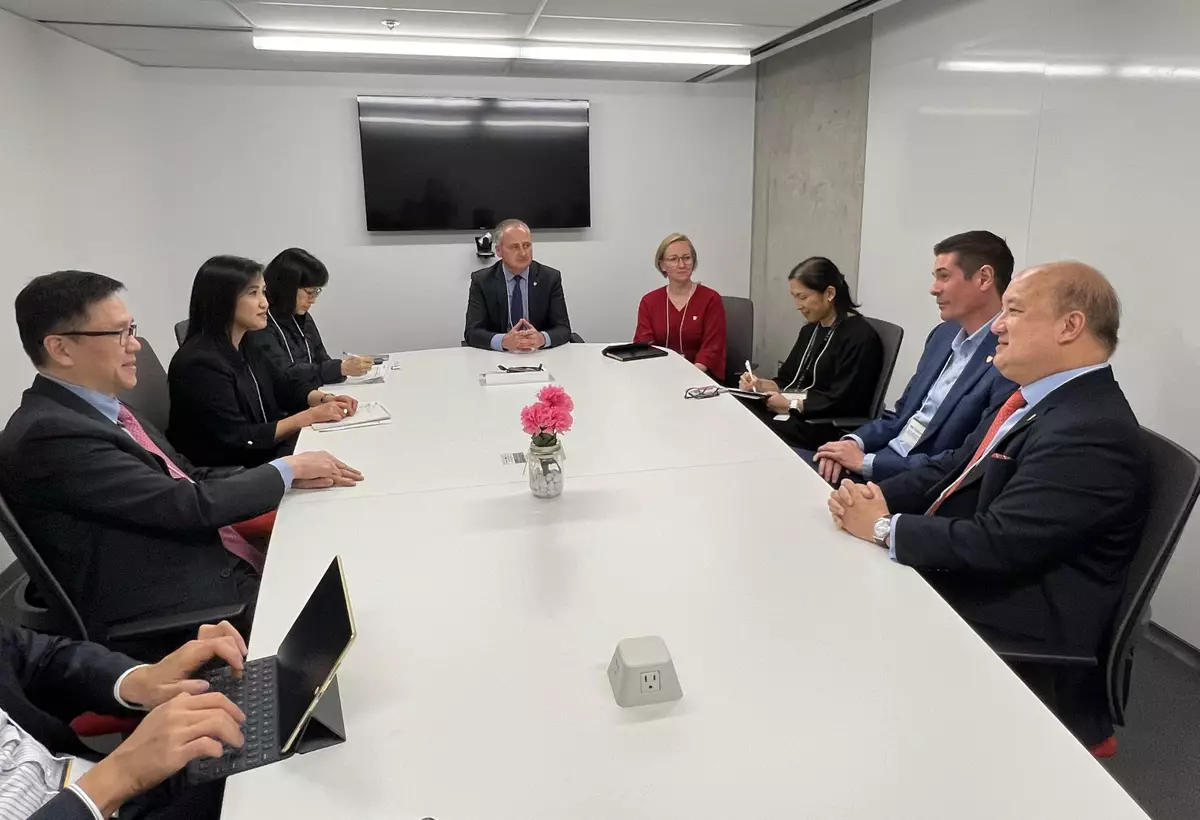
SITI continues visit to Canada Source: HKSAR Government Press Releases
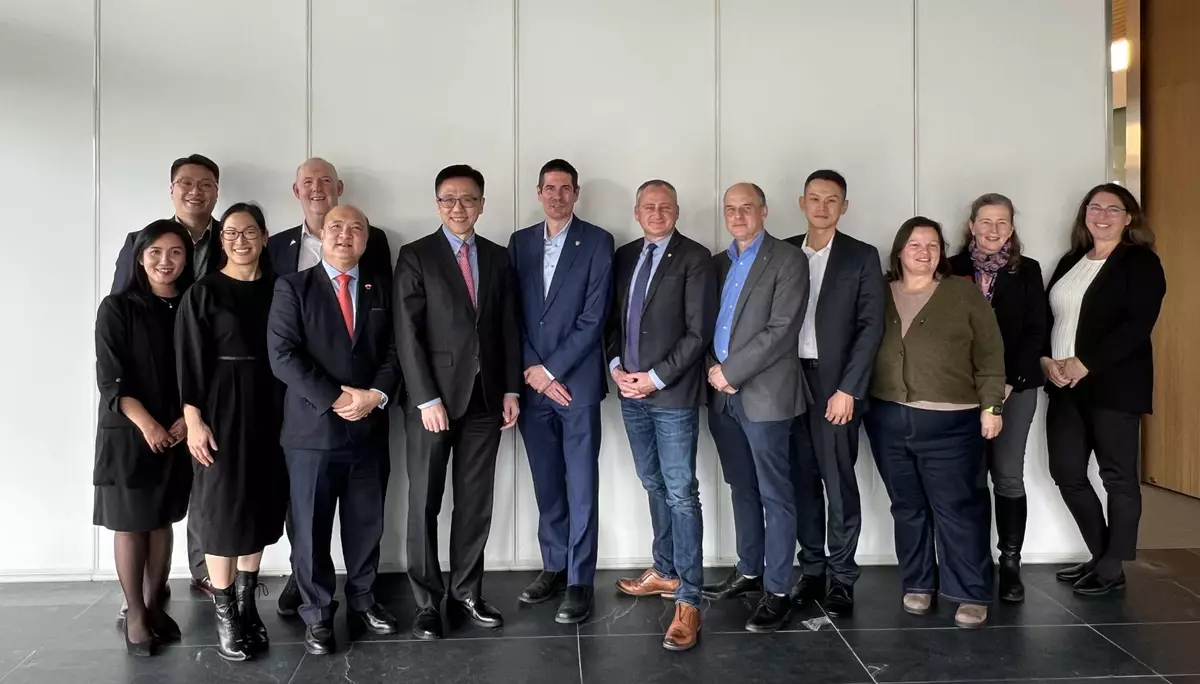
SITI continues visit to Canada Source: HKSAR Government Press Releases
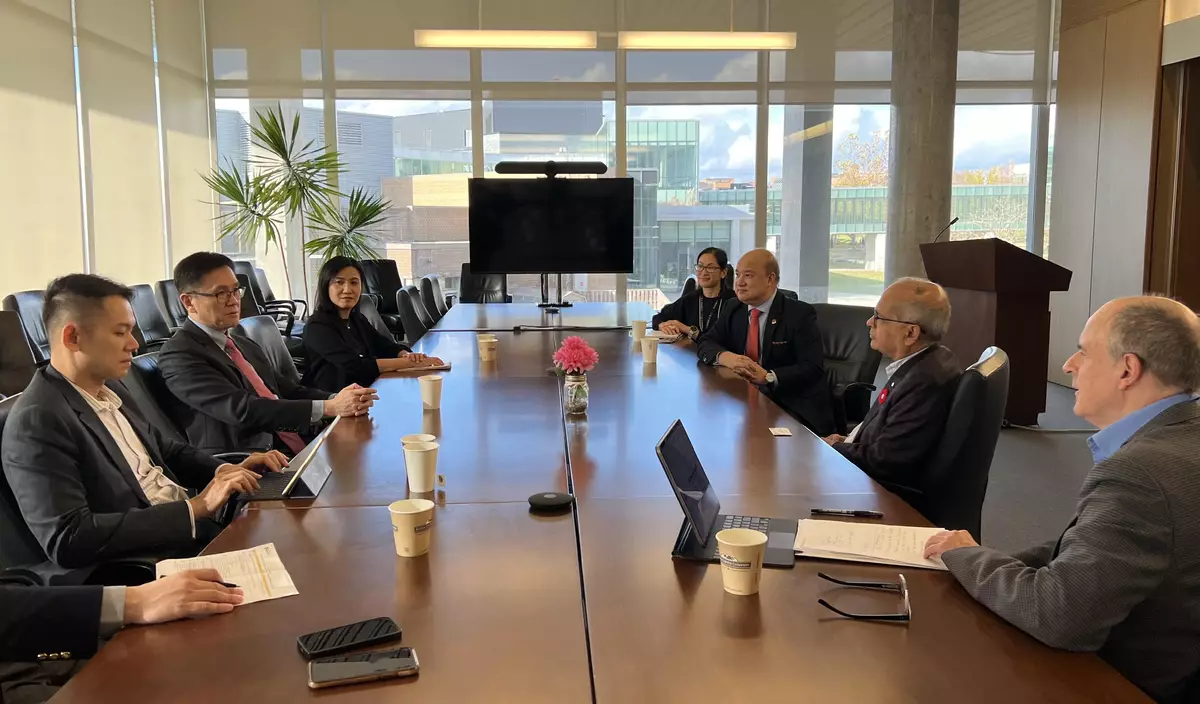
SITI continues visit to Canada Source: HKSAR Government Press Releases
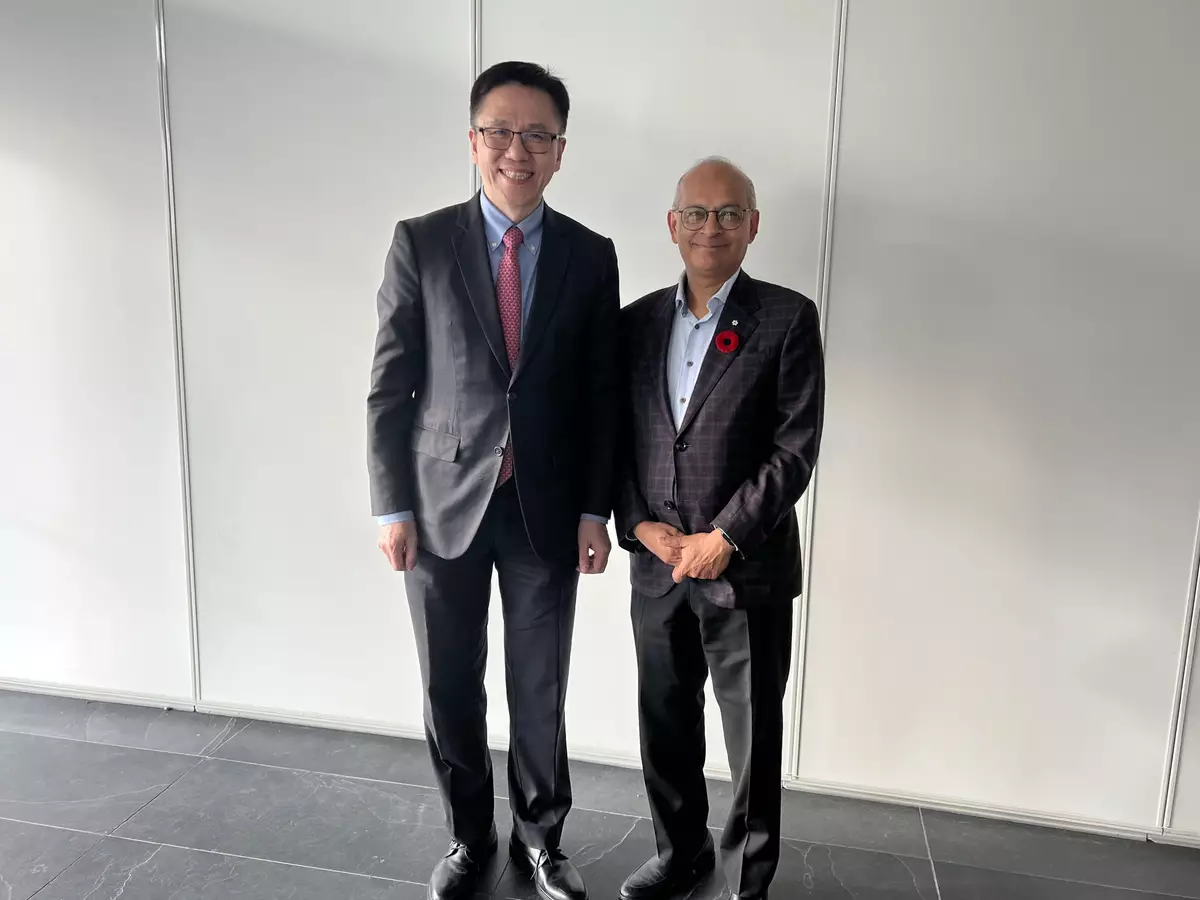
SITI continues visit to Canada Source: HKSAR Government Press Releases











